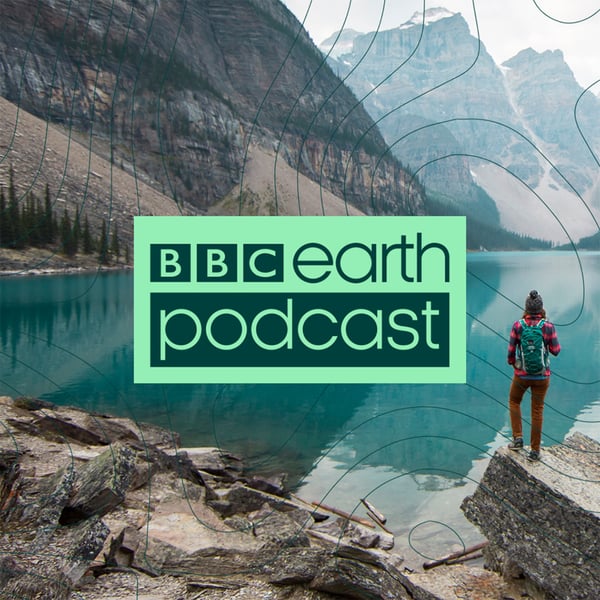Death
BBC Earth Podcast
Jenkins Laura
4.6 • 611 Ratings
🗓️ 17 October 2022
⏱️ 36 minutes
🧾️ Download transcript
Summary
Rutendo and Sebastian explore death and its role in the natural world. For Sebastian, death is a permanent state, a complete end to a life. But for Rutendo and her family, death is just a temporary parting. Around the world burial customs differ, but throughout nature, death and decay provide sustenance to other life-forms.
Sebastian explores the extraordinary diversity within the ground, with soil ecologist Frank Ashwood, who explains that a single teaspoon of healthy soil contains more than a billion organisms. Among them, the nematode worm – the most abundant organism on the planet.
Wildlife pathologist Simon Spiro performs a post-mortem on an elderly cheetah from Whipsnade zoo, and takes us through ZSL’s archive of specimens from nearly 120 years of animal post-mortems. Samples such as worms from the gut of a European bison, or stones from the stomach of a llama, are used to help scientists learn more about the basic biology of each species.
Rutendo and Sebastian are joined by TikTok star Mamadou whose animal fact videos have brought him more than 15 million followers. Rutendo and Mamadou bond over their shared belief that jaguars are disrespectful, and he leaves Sebastian with a disturbing story about Pelicans.
Credits
The BBC Earth podcast is presented by Sebastian Echeverri and Rutendo Shackleton.
The producers were Rachel Byrne and Geoff Marsh.
The researcher was Seb Masters
The Production Manager was Catherine Stringer and the Production Co-ordinator was Gemma Wootton.
Podcast Theme Music was composed by Axel Kacoutié, with mixing and additional sound design by Peregrine Andrews.
The Associate Producer is Cristen Caine and the Executive Producer is Deborah Dudgeon.
Special thanks to
Simon Spiro from the Zoological Society of London.
Soil ecologist Frank Ashwood.
Jennifer Jerret from The Acoustic Atlas at Montana State University for providing the soundscape from Yellowstone National Park.
Mamadou Ndiaye who can be found on TikTok under @mndiaye_97
Hosted on Acast. See acast.com/privacy for more information.
Transcript
Click on a timestamp to play from that location
| 0:00.0 | My grandfather's death was sudden and traumatic. |
| 0:07.0 | His support of the Zimbabwean liberation struggle |
| 0:10.0 | had caught the attention of the Rhodesian military, |
| 0:18.0 | and he was assassinated with a landmine while driving. |
| 0:34.2 | After his death, my grandmother, who already had five children and was heavily pregnant with another, had a lot to take care of. |
| 0:44.3 | All relatives needed to be informed. You see, in our culture, we believe that a human being's funeral can only proceed when the whole family is united. |
| 0:56.2 | When preparing for the funeral, my grandmother chose objects to place within his casket, his |
| 1:01.7 | favorite blanket, his suit, his wedding ring. |
| 1:06.1 | But she also had another hard choice to make. |
| 1:09.8 | Now that my grandfather had died, my grandmother had to decide |
| 1:13.2 | whether or not she would marry his brother. You see, in parts of Zimbabwe, custom dictates that |
| 1:21.3 | a widow should wed her deceased husband's brother as a way of remaining integrated and supported |
| 1:26.9 | within her community. |
| 1:29.3 | As a newly single parent with six children to look after, the road ahead definitely looked |
| 1:35.3 | difficult. But for my grandmother, death did not signal the end of her vow to my grandfather. |
| 1:42.8 | She strongly believed that she would see her husband again |
| 1:46.0 | when she too passed on. So, despite having a big family to provide for, my grandmother broke this tradition |
| 1:55.5 | and chose not to marry. |
| 2:06.3 | After my grandfather was buried, my grandmother planted a water lily on his grave. |
| 2:11.9 | It stems stretching beneath the soil to a few inches above the ground. |
| 2:19.6 | She explained to my 14-year-old father, this is to help Baba's soul find its way to the surface. |
| 2:24.6 | For many Zimbabweans, the grave is not a permanent place. |
... |
Please login to see the full transcript.
Disclaimer: The podcast and artwork embedded on this page are from Jenkins Laura, and are the property of its owner and not affiliated with or endorsed by Tapesearch.
Generated transcripts are the property of Jenkins Laura and are distributed freely under the Fair Use doctrine. Transcripts generated by Tapesearch are not guaranteed to be accurate.
Copyright © Tapesearch 2025.

